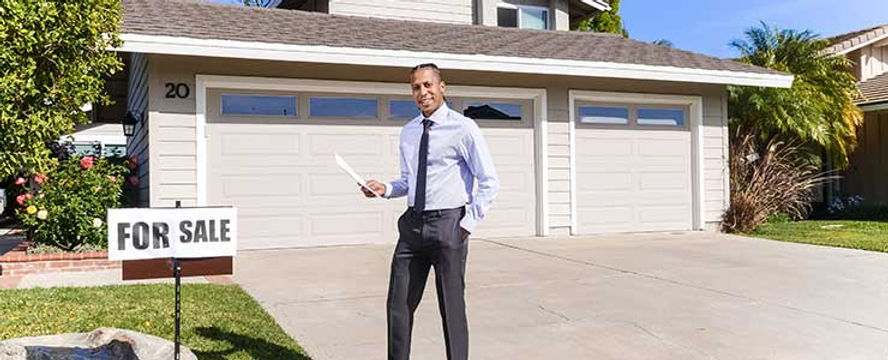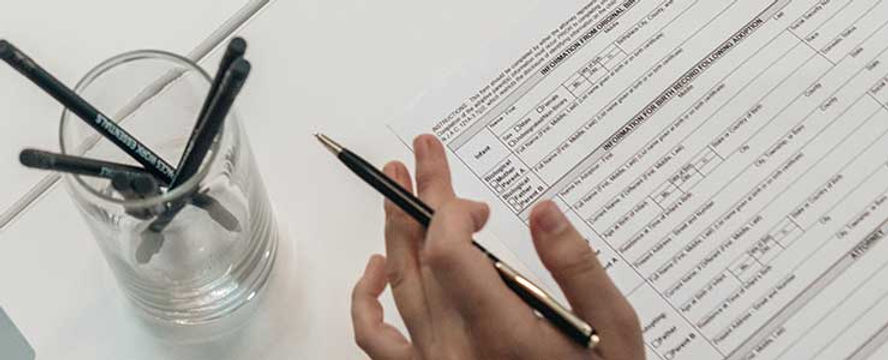Updated: Jan 31
When planning to move, you may face the difficult decision of whether or not to sell your home and buy another one. Or, on the other hand, rent your home. Many factors may influence this decision, such as which option will return more, the mortgage rate, and whether or not there is enough equity in the house.

Those
numbers are constantly in flux and can also be complex to calculate. The best suggestion for getting a reliable estimation of where you are when it comes to the financial and real estate market ramifications of selling your home versus renting it at any given time is to consult professionals. Real estate agents, financial advisors, and tax professionals could all give you solid, real-time advice on those aspects of the decision.
Here, we will take a good look at some of the pros and cons of both selling and renting that do not fluctuate with the market, as well as some of the questions you need to ask yourself – things that pertain to your own lifestyle and preferences. That way, you – and whoever co-owns the property with you, if anyone – can get a good handle on the constants before considering the variables.
What Are Some of the Pros of Selling Your Property?

First of all, when selling, you’ll receive the lump sum of the asking price for the home, less any fees, and what you owe on the mortgage. This can give you a sizable down payment toward your next home. This is not true when renting out a property. You would need to make sure that you rent it for an amount that exceeds the monthly mortgage payments, taxes, upkeep, etc. – and that is to break even.
Depending on the real estate market when you purchased the home and the rental market when you attempt to find tenants, that can be a tricky proposition. Also, if your property sits empty for even a month or two during a transition time between tenants, that can seriously affect your cash flow. Not to mention, if you have another mortgage on the house that is your new primary residence, you can find yourself in a situation where you are paying double mortgages. Sometimes for several months.If that’s not a hit that your budget can afford to take, it’s a good idea to think very seriously before deciding that renting out your home is the way to go when you move out.
Another benefit of selling your house outright is that you can more easily find a new home that better suits you. When you have a sizable lump sum for a down payment on a new mortgage, the entire process becomes much smoother. In fact, depending on how much equity you have built up in your current home prior to selling it and what the real estate market is like where you are moving, you might even be able to pay the entire purchase price of a new home in cash.
Yet another benefit of selling your house outright is that you can find another home in a better neighborhood or school district when you have a larger down payment sum or paying cash. If there are multiple bids for a home, many sellers will look at the financing arrangements as one of the factors when choosing between the offers. The reasoning behind this is that the simpler the financing arrangement, the smoother the financing process will likely go, and the less chance the deal will fall apart because the financing didn’t go through. Having more cash on hand makes it quantifiably easier to get into more competitive homes in more competitive areas.
There are many reasons you may want to have a lump sum of cash at your disposal, even if you are not planning to put money towards purchasing a new home, versus the small amounts of profit that would come in every month if you were renting your property. Having the cash in hand from the sale of your home enables you to pursue whatever you would like to do with that money instead of being tied to the small monthly stipend you get from renting. Perhaps you would like to invest the money in something besides real estate, or maybe you would like to take up a more nomadic lifestyle.
Also, you will recuperate any money you need to put into upgrades and repairs on your property quickly. In fact, depending on your sales strategy, you could even sell the property as it is and leave it to the buyer to make any necessary upgrades or repairs.
Lastly, when you sell your property outright, you can avoid all of the trouble of finding tenants and collecting rent checks every month. Not to mention sidestepping all of the headaches that are inherent in being a landlord. Even if you hire a property management company, there are still numerous legal and financial responsibilities that go along with being a property owner, with tenants onsite. By selling the property, you will bypass all of them.
What Are Some of the Pros of Renting Out Your Property?
If the house was your primary residence first – i.e., you lived there for at least two years prior to renting out or selling it – you can sometimes get rental money tax-free. In these situations, you’d be able to take advantage of deductions for depreciation and homeowner’s insurance, both of which are designed especially with landlords in mind. You can also tap into certain credits. Again, none of this applies to people who purchase property for the specific purpose of renting it out, so you would be in a unique position if you are moving out of a property.
If you are planning on investing money into upgrades so that you can rent the property for the highest amount possible, then you can look at that rental income as a steady stream of monthly income. Provided your tenants care for the property well, pay their rent on time, and stay in the property for a significant length of time – this can give you a certain measure of financial stability.
If someone is planning to purchase the property but still needs to sort out their finances, renting the property to them on a short-term basis can be an excellent way to recuperate some monthly upkeep costs. This is better than carrying these costs while the property is empty. Of course, this does prevent the property from selling during the time that person is in residence, so you will need to do due diligence to determine how serious your prospect is about purchasing the property at the end of their short-term lease.
In fact, if the carrying costs of having a property sitting empty as you attempt to sell it are a factor for you, then renting out the property on a month-to-month basis while you continue to attempt to sell it can be a reasonable solution. Of course, you will need to make sure that you select tenants carefully to ensure that your property stays in sale-ready condition even while they are in residence.
Another benefit of renting out the property is that you can keep it in the family indefinitely if the neighborhood is a place that you see yourself eventually returning to, and you feel you would want to come back to the house if you do so. Also, if the home is an heirloom property that has been passed down through generations, holding on to it will leave you the option of passing it down to your children, as well.
If you ultimately decide to rent it out, you’ll pay out less money upfront than if selling – i.e., lower commission fees. But if you make the decision to hire a real estate agent, they put all of the money necessary for marketing the property up themselves against their eventual commission. If you are going to rent the property out, you will need to invest in whatever it takes to get the word out to people looking for rentals. So, this is really a point that you can look at both ways.
What Are Some of the Cons of Selling Your Property?
The income you make on selling a house isn’t guaranteed. So if you sell, for example, and the housing market has slowed down, or other issues keep buyers away, then it could take longer to sell than expected. This can mean spending more money on things such as taxes and utilities, in some cases. Not to mention – if you are carrying a mortgage on the property, that still needs to be paid each month, whether you are in residence or not. You are still the owner, after all.
And if the market is really bad where you live – e.g., foreclosure rates are high – then this problem becomes even more pronounced. The longer you hold onto a property while it is on the market without selling, the less valuable the buying public sees the property. Potential buyers start to wonder what is wrong with the property that it has sat stagnant for so long, with no one else showing interest. Even subconsciously, buyers will pick up the idea that if other people shopping for a home saw something less than desirable about the property, then that is the way that they should view it, as well.
What Are Some of the Cons of Renting Out Your Property?

First of all, there are some things about being a landlord that might surprise you. First off, your tenant may not take care of the property as you would, and they might have a circle of acquaintances who visit the property who are even less respectful of it. So it can be vital that you invest in security measures (such as good locks) before they move into your home. The kinds of upgrades that would be necessary can be costly, depending on what they are.
Some renters will destroy the property the moment you turn your back. For example, they could rip out light fixtures and do other damage to wiring or plumbing, discard valuable items, and so on. Even barring such extreme behavior, they may be hard on the property in ways that go beyond regular wear and tear. They may leave permanent odors, stains on the walls and carpets, etc. You have no way of knowing in advance who will end up renting your home – which means that there’s always a certain degree of risk involved with being a landlord.
If you’re renting out just part of your house (what some people call an “in-law” apartment), keeping track of what the renter is doing and how much energy they’re using can be challenging for some landlords. Again, this is something where it really pays to research information ahead of time so that you’ll know what to expect when entering into such an arrangement.
Additionally, the legal requirements you must abide by when renting out a property can be numerous and onerous and often vary by state. You are expected to know them and held responsible if you violate them. Ignorance is not considered a defense.
Additionally, it would help if you thought about the responsibility and headache inherent in renting out a property. Every repair, every replacement, every disaster – these will all be your responsibility. This may or may not be a set of responsibilities that you are willing to take on. Certainly, a property management company will take some of the day-to-day tasks off your shoulders, but when it comes to big picture decisions and the outlay of capital to cover situations that come up, that will all be on you.
Another thing to think about is that you might not make a profit at all. In fact, you might lose money. It really all depends on what amount you can charge for rent, what the rental market will bear. Additionally, how many months out of the year you can keep the property occupied. If either of those two things do not fulfill expectations, the venture could turn into a real money pit.
What Are Some of the Questions You Need To Ask Yourself When Deciding Whether to Sell Your Property or Rent It Out?
The specific questions you need to ask yourself when deciding whether to sell your property or rent it out have a lot to do with your own lifestyle preferences. For example, if you have an entrepreneurial spirit and marketing knowledge and are reasonably confident you can maintain tenants in the property most of the time, then renting might be right up your alley. However, if you value a more stress-free life and a financial and legal arrangement that is significantly more clear-cut, then selling might be the right option for you.
Determine the two lifestyle and preference categories you fall into by examining some of the things you should ask yourself.
The first thing you will want to ask yourself is – are there specific laws and regulations I need to know about before deciding which option is best for me? This is something you will need to consult a local professional about, as laws vary by region. Still, when you do find out what your local ordinances are, you will need to come to a decision about whether they make the idea of renting more or less favorable to you.
The second thing you will want to ask yourself is – how will the decision to sell or rent out my home affect my personal finances? When it comes to examining your finances before deciding whether to sell or rent out your property, there are just a few factors you need to think about. Look at what having a large cash infusion would do to your tax obligation, for instance. Also, determine the monthly expenses related to the property to figure out what you would need to charge in rent to break even or turn a profit.
The next thing you will want to ask yourself is – will the rental market in my town and neighborhood now support the rent amount I would need to charge to cover the property’s expenses, or will my property sit empty for months on end. At the same time, I try to get tenants into it? What will my likely occupancy percentage be, based on what I plan to charge? Remember, for every single month that the property sits vacant, you are responsible for paying the mortgage, taxes, and any utilities and miscellaneous fees that come due. That could amount to basically paying for two households. There aren’t many people in a financial position to do that for very long. For a lot of people, even one month would be too much for their finances to bear.
The next question you should ask yourself is – what will my tax implications be for both of these choices? You should know that some states have laws that will allow you to avoid paying taxes on the profits you make from either selling or renting out your property. In addition, if you are a homeowner and decide to rent out your house, you might be able to get income tax credits. However, consult a local tax and/or real estate professional to get clear on the laws in your area, as well as how they would apply to your particular situation.
Another thing you will want to consider is- how much would I need to pay a property manager to assume the responsibility of day-to-day management on the property? When deciding whether to sell your property or rent it out, remember that finding an affordable and reliable property management company can be a big help, if not a necessity. However, that is a process that can often be easier in theory than in actuality. Still, especially if you are not going to be living locally after you vacate the property, hiring a property management firm is pretty much a necessity. So, it would be a good idea to look into the going rate that your local property management firms charge and research which ones are highly ranked and have a good reputation.
Lastly, ask yourself – do I need to invest in upgrades before finding the right tenants to occupy my property? While some people feel that it’s always a good idea to invest in upgrades or improvements before finding the right tenants, others disagree. The truth is that this really depends on your property, what state it is in, and where it’s located. See what kind of space and quality is expected for that rental price. Look at the comparable listings in your area, which are setting around the same ballpark you are planning to charge.
In conclusion, whether or not you should sell or rent out your home depends on all sorts of factors, such as what tax incentives you have in each scenario, the laws that surround this type of choice in your state/jurisdiction, and your family situation. In some cases, it’s better to rent out than sell. In others, it’s better to sell than rent. Simply consider the information laid out in this article, and consult professionals to determine how market factors will affect your individual situation. Then you will be in a solid place to make a confident and informed decision.








